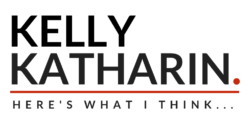While “food addiction” per se is not yet recognised by the establishment as an actual thing, those of us who know, KNOW!
You are a high achiever in every other area of your life but food continues to defeat you. Despite your best intentions, you find yourself eating in a way that runs counter to what you really want. You berate yourself with talk of “I wish I had more willpower” or “I lack discipline” and shame and guilt define your relationship with food. And check it: what are the foods that you crave? Why do they fit neatly into one big category?
If it is addiction at play, then talk of willpower and discipline must fly through the window. Addiction means something happening in the brain, and therefore SKILLpower is what is needed, not WILLpower.
How do I know if I am addicted to food?
This is not intended to officially offer a diagnosis, and is for individual use only. I invite you to try it and see if it fits. This tool is based on the the DSM 5 criteria for substance use disorders (Diagnostic & Statistical Manual of Mental Disorders, 5th Revision)
- Answer Yes to 2 -3: mild substance use disorder
- Answer Yes to 4-5: moderate substance use disorder
- Answer Yes to 6 or more: severe substance use disorder
- I regularly eat more than I intend to.
- I have tried unsuccessfully to cut back on my eating.
- I have spent a lot of time planning, getting food, eating and recovering from how and what I ate
- I experience cravings and urges to eat the foods I know I shouldn’t eat.
- Eating how I do makes it hard to fulfill roles at home, work, school or as a volunteer.
- I have relationship problems related to my eating.
- I have given up work or social activities in order to eat or because of how I eat
- I eat even when it is hazardous or dangerous to do so.
- I eat in spite of knowing about the consequences of eating the way I do.
- I need to eat more than I used to in order to get the feeling I want.
- I eat for reasons other than hunger such as boredom, fatigue, loneliness, anger, depression, headache, stomach ache, etc.
I May Be Addicted to to Food…so what next?
There is hope!
There are 2 approaches that are the appropriate response to an issue where addiction is at the root.
COMMUNITY
As humans, we are tribal… we were created to move in harmony with the tribe in order to remain safe. One way to deal with cravings and create new neural pathways in our brain is to be in community with others who are eating the way we do. The mirror neuron cells in our brain override our cravings pathways, new mental associations are formed and our brain has a new normal to pivot towards.
SKILLS & TOOLS
Then we learn and implement skills to combat addiction:
- Cue & trigger management
- Planning
- Emotional management tools that lead to greater self-awareness, calm, ability to reckon with trauma, make emotions our friends, interrogate and reframe limiting beliefs
- Food planning, including abstinence from addictive substances.
Resources to do with Food Addiction Recovery
Contact me here for coaching. I am a trained food addiction recovery advocate who can offer you evidence based approaches to food addiction recovery.
You can also check out the Food Addiction Reset community here.
There is a way forward.

Always a pleasure to read your Articles. Very informative, simple but not simplistic!
Thank you so much, Donna! I hope you are well.
I am well thank you! Missing my Coach but oh well we have to cut the umbilical cord sooner or later. Dwl
On point as usual, Kelly. Your teachings have helped me to be better eater and become more aware of what enters my body as food. It’s simple – real food! Keep inspiring ✨️
Real food!!!! YES! Thank you so much, Natalie.